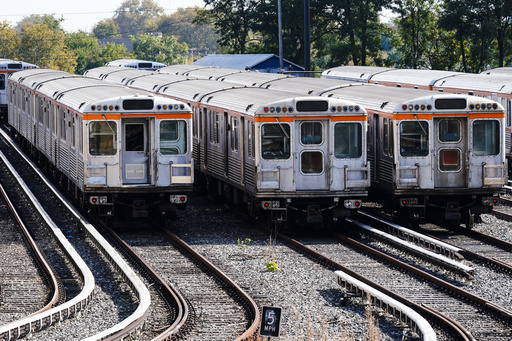
The mass transit system in Philadelphia has successfully negotiated a preliminary contract agreement with its major workers’ union, which helps prevent an anticipated strike involving thousands of employees.
On Wednesday, the Southeastern Pennsylvania Transportation Authority (SEPTA) and the Transport Workers Union Local 234 cemented a one-year contract. This agreement includes a 5% salary increase for union members along with an adjustment to their pensions. Additionally, the contract incorporates provisions aimed at enhancing the safety of frontline employees, such as introducing bulletproof barriers for drivers, who frequently encounter violence and harassment.
Union President Brian Pollitt indicated that a vote to ratify the contract is set for December 6. This agreement follows a recent stance taken by union members, who had voted to authorize a strike as their previous one-year contract with SEPTA was due to expire on November 8. Nevertheless, union leaders decided to postpone any strike actions, provided that they perceived progress during negotiations.
Local 234 represents approximately 5,000 members, which includes operators of buses, subways, and trolleys, as well as mechanics, cashiers, maintenance personnel, and custodians.
Pollitt emphasized the importance of avoiding a strike, highlighting that public transportation is essential for many residents, particularly for students who rely on SEPTA to commute to school and for workers dependent on its services to reach their jobs. He remarked, “We got a fair deal, and now we need to focus on ensuring SEPTA remains a robust system for everyone who relies on it.”
Scott Sauer, the interim general manager of SEPTA, stated that both parties put in considerable effort to finalize the agreement. He expressed that “This agreement is fair to our dedicated frontline employees and responsible to customers and taxpayers.”
Despite reaching a contract agreement, SEPTA has consistently expressed concerns over its financial stability. Recently, they proposed a substantial fare increase of 21.5% due to take effect on New Year’s Day, along with significant service reductions scheduled for summer. A public hearing addressing these proposals is set for December 13.
If the fare adjustments are sanctioned by SEPTA’s board, patrons will face the proposed increases alongside a pending interim average fare hike of 7.5% anticipated for consideration later this month. Should both proposals pass, the usual fare for public transport could rise from $2 to $2.90. Furthermore, SEPTA Key fares, which offer discounts for customers using prepaid cards, would range from $5 to $8.75 starting January 1, as opposed to the current range of $3.75 to $6.50 based on different zones.
The last fare increase for SEPTA was implemented in 2017, and the new proposals are projected to generate an additional $23 million for the present fiscal year and an estimated $45 million annually from 2026 onward.
As the sixth-largest public transit system in the nation, SEPTA is confronting a structural annual budget deficit of $240 million as pandemic-related federal assistance declines. The agency has also lost out on roughly $161 million in state funding as the Republican-controlled Senate did not advance a proposal put forth by Democratic Governor Josh Shapiro for $283 million in new financial aid for public transit. Instead, state lawmakers sanctioned a one-time allocation for the transit systems trust fund, of which SEPTA received $46 million.
